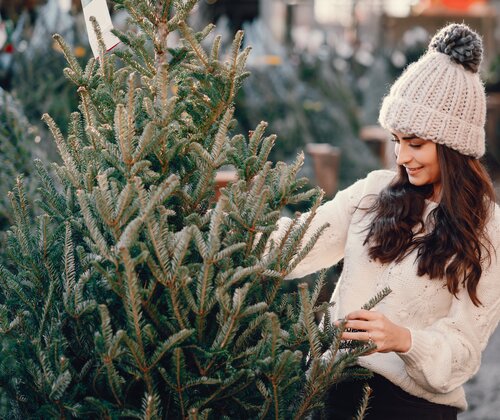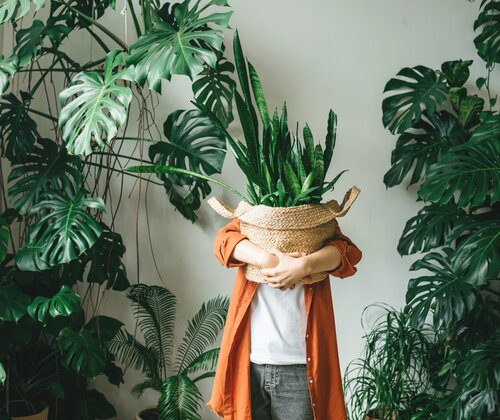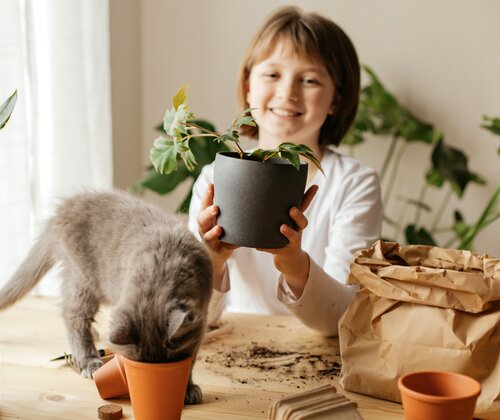
5 natural tips against fungus gnats
Fungus gnats can be a real challenge for plant lovers. The little flies are not only annoying, but can also harm young plants and seedlings. We have collected tips for you to help your plants grow healthily.

Fungus gnats prefer to lay their eggs in moist soil. Whilst the midges are only perceived as a nuisance, the larvae can also cause damage to plants if they nibble at the roots.
Firstly, you should make sure that they are actually fungus gnats. The small, dark flies are often found near the soil surface of your potted plants. Their larvae, which live in the soil, feed on organic matter and sometimes, unfortunately, on the roots of young plants. If you actually have fungus gnats in your plants, you need to take action.

Further tips against fungus gnats
- Sprinkle the soil surface with 1 cm of sand.
- You can also trap gnats and curb further proliferation by using yellow traps.
- Even after successful control of fungus gnats, it is important to check the plants regularly and maintain the preventative measures mentioned above to prevent recurrence.
- Sprinkle the soil surface with 1 cm of sand.
- You can also trap gnats and curb further proliferation by using yellow traps.
- Even after successful control of fungus gnats, it is important to check the plants regularly and maintain the preventative measures mentioned above to prevent recurrence.

Every year, around 34 million Christmas trees are felled in Germany, Austria and Switzerland. So it seems obvious to say that plastic trees are more ecological than real fir trees. But what is actually better for the environment and for our health? Read here why we advocate real trees.

Houseplants are not only decorative, but also true health boosters. They improve air quality, reduce stress, promote concentration and increase overall well-being. Find out here five reasons why everyone should have green roommates.

What has long been the trend in the garden with "organic" is also gaining more and more awareness with houseplants: the ecological and natural care of the green co-inhabitants - completely without chemicals. Here, the focus is often on your own health, as well as the well-being of children and pets. We have tips for you on how to strengthen, fertilise and protect your Urban Jungle from pests with the power of nature.

